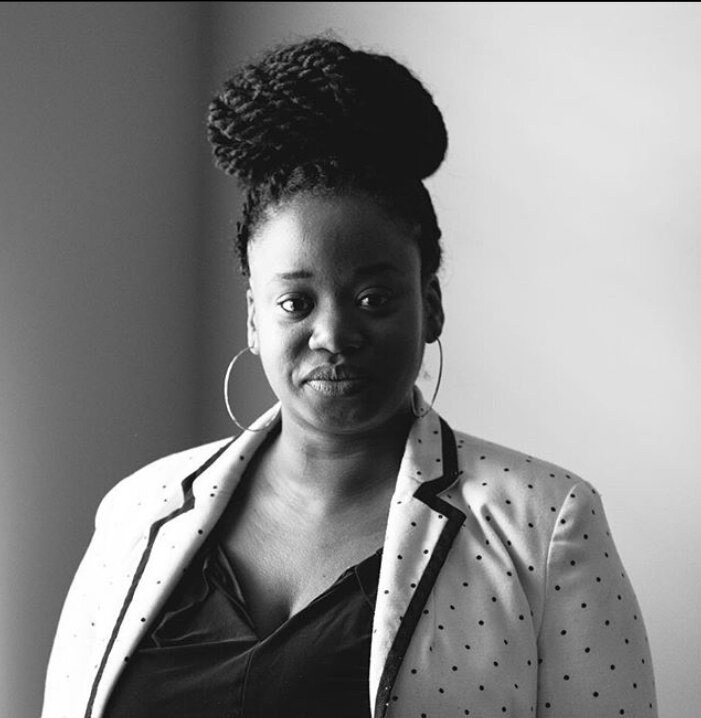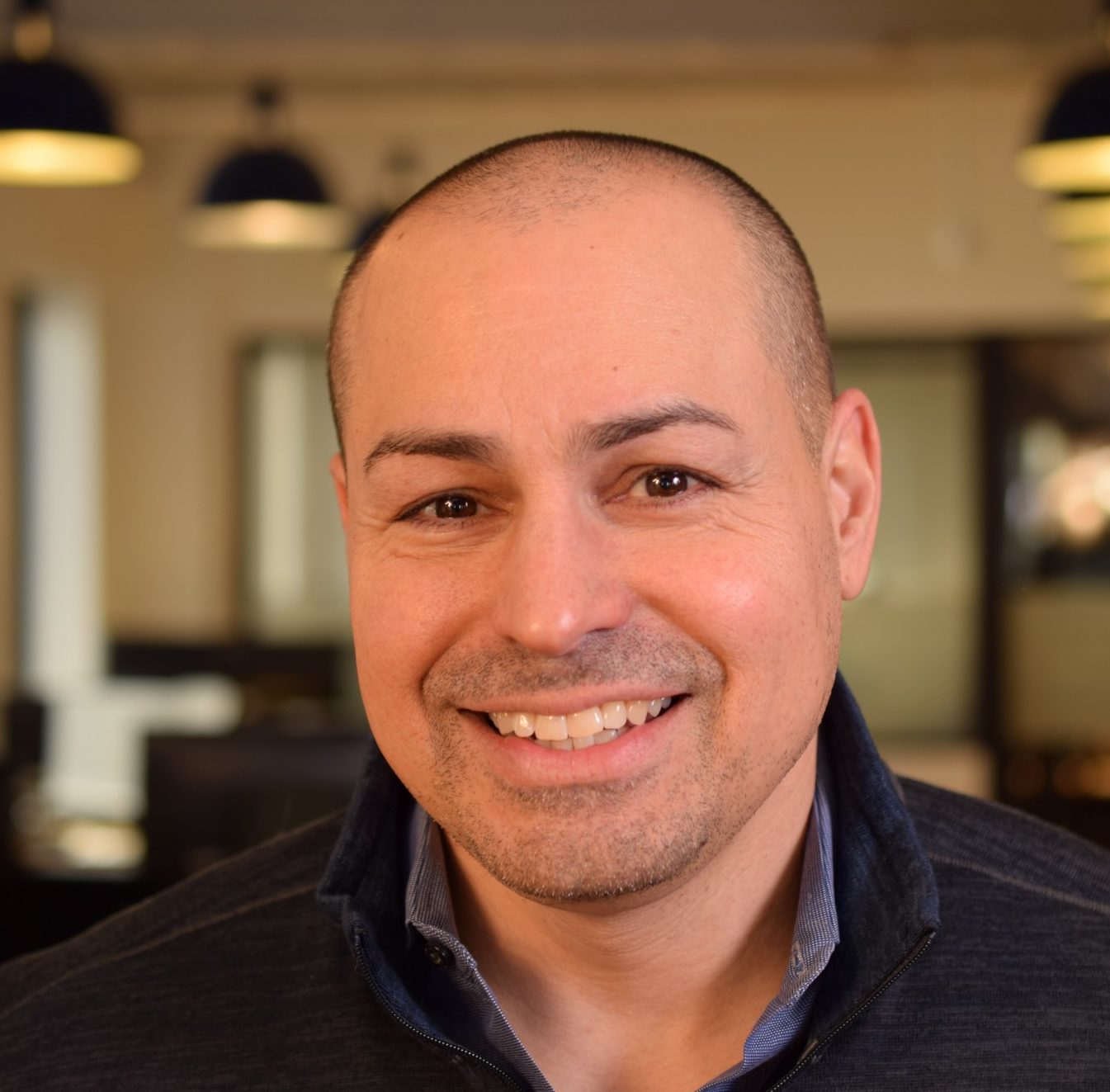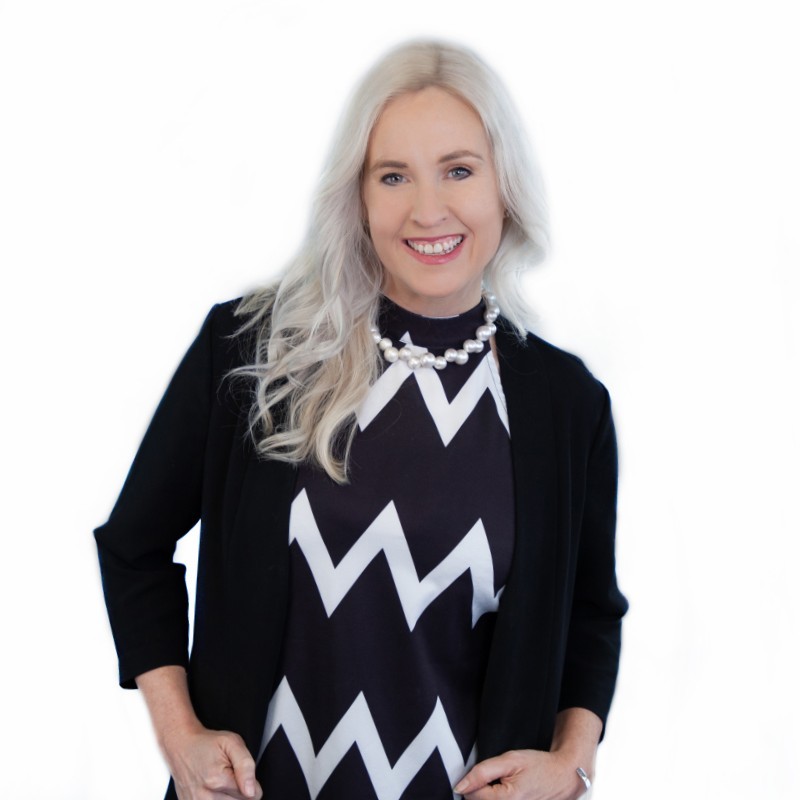Any time we get the honor of listening to a black woman tell us what it’s like in the workplace, our ears perk up.
Kelli Jones, co-founder of Be Nimble, helped us understand the realities for black and women-led workplaces.
What makes diverse-led teams different
At one level, business is business, no matter who is running things. But there are some unique things that make the cultures of black- and women-led companies different.
Kelli thinks the first difference is the diversity of teams. Having a minority at the helm takes the pressure off being unlike others around you. It creates a more safe environment. Unless they are very open, intentional and genuine, white male leaders don’t create that same safety by default.
Kelli emphasizes that being diverse is hard. With a monoculture, you don’t have to think about different holidays or communication styles. But a diverse company is forced to think about these things all the time. Kelli says leaders “still have to acknowledge and celebrate the perspectives of people that are part of that company.” They have to be mindful of the cultures of their teams and find ways to make them feel included.
The double hurdle
Any time someone from a historically oppressed group gets up to speak, or leads a team, or leads a company, there are two hurdles to cross. One hurdle is just doing the work like anyone else.
But before they have even get to that point, they have to deal with imposter syndrome. They have to deal with the voices telling them they shouldn’t be here–that no one like them has ever done this
Kelli says she constantly faces tough questions internally—am I being seen as an equal? Or am I being seen as just the black face at the table to represent diverse voices?
Sometimes women are disregarded and misunderstood. “If we’re coming across as direct, that can be seen as being aggressive.” And this can cause harm. But in most cases, work speaks for itself.
Kelli feels black women in leadership will always have at least one extra hurdle to cross because of how they are regarded in society. She says this motivates her to do better every day. But even being positive all the time can be tiring. The important thing, she says, is to keep telling yourself that “what you do every day is impacting the world.”
What minority leaders know
Kelli says a lot of white male leaders of tech startups don’t understand their audience. However, this is often the distinct advantage of black- and women-led companies. They tend to be more connected to their communities and can more deeply feel the needs of what needs to happen. If white male leaders would spend more time building their connections to the communities they want to serve, they would gain a lot of insight.
Links
Quotes
7:24 – “When you are diverse, especially when you’re really diverse, you still have to acknowledge and celebrate the perspectives of people that are part of that company.”
14:28 – “I’m a black woman. I’m dinged twice. I’m not only a woman, but I’m also a black woman. And so automatically, I’m at a disadvantage. So that means every day I have to show up times 10.”
Today, our guest is Kelli Jones. She’s the cofounder of Be Nimble. Hey, Kelli. How’s it going?
I am doing well. How are you?
I’m doing great. I’m very, very excited to talk with you. Before we talk about Be Nimble, let’s do a little check in round question to prove your humanity. I want to know what is your favorite condiment to put on food?
It’s a tie between cheese, I don’t know if you call cheese a condiment. I put cheese on almost everything. But if we’re talking actual condiments, it would probably be barbecue sauce.
Yes. And you do both often I’m assuming.
They’re a marriage made in heaven.
That’s good. So tell us a little bit about Be Nimble. What is it? And what’s been your experience with it so far?
Absolutely. So I moved back to Indianapolis, born and raised here, but moved back in 2017. Spent most of my career working in tech. Lived on both coasts, both New York and Indianapolis and really just focused on working in tech and specifically diversity in tech. But obviously working in much larger markets. It’s a far gone, I shouldn’t say far gone. But it’s a much further along process than it would be if you look at some smaller ecosystems, like Indianapolis or Louisville or Cincinnati. And so I started Be Nimble with the framework of understanding what the work that I’d been doing up until that point, and really trying to find ways to implement that in smaller markets that maybe had more emerging tech hubs. So coming back home felt like the best testing pilot for it. And so over the last four years, we’ve developed an organization that serves two capacities. One is talent, the other is entrepreneurship. We help train career transitioners, people that are unemployed, underemployed, that are interested in getting into tech fields, both technical and nontechnical. I think we talk a lot about technical roles, engineering and web development, software development, which is very important. But tech companies also hire salespeople and marketing people and customer success people and digital marketers. And so there’s a lot of people that really can transition into the startup space. It’s just a changing of skills of sorts. So we do a lot of work in that space and help place people at companies. And then the other side is obviously entrepreneurship, where we work with black founders. We do workshops and seminars, and then we also have accelerators, that are much longer term processes of us working with companies as well.
Fantastic. I’m so excited you brought that to Indianapolis from other places, and can help us also kind of get off the ground and be aware of what’s going on in that space.
Yeah, I think it’s important. The difference between what we see with much larger companies looking to be more diverse is that they’ve already hired 100,000 plus people. So it’s so much harder to shift that tide. But what can happen is we have those conversations starting at the beginning. So startups start thinking about diversity at the beginning of the process. You don’t get to a point where you’re trying to go back and fix it. You’re at a point where it’s just a part of the beginning of how you’re starting. And so that’s how we’re looking at how we can do work. I think the other side of that, too, is what can we do to just build the capacity of more diverse startup leaders? I know we’re going to talk about this later, but when you have diverse companies that are led by diverse people, naturally diverse talent comes along with that. And so if we can help push for more of that, I think we’ll see a change in what talent looks like, too.
Yeah, absolutely. I want to start this conversation just talking about adjectives, because a lot of times, you have a founder or you have an entrepreneur, and then you have a black founder, a black entrepreneur, or a woman founder, or something like that. And it’s important for us to realize that everyone has an adjective in front of them, that there’s no default setting and what we think is default is often just a white male perspective that’s there. So I want to have this conversation be about as we build digital workplaces, what are some things that we should be aware of that go on in minority run organizations that we can all learn from? What are some ways they structure their culture? What are some ways they look at leadership that are different than what the typical white male run thing? So let’s just start with culture, about how things are built. And even the idea of inclusiveness is maybe a good place to start. So give us your perspective on what’s different about when you have a minority who’s in charge, who’s the entrepreneur, who’s leading everything, and maybe the entire team is also minority voice that’s there. How does that culture look different?
To start, I would say that I don’t think any business runs any differently than the other. The difference in the color or the gender of leadership, essentially, they’re going to run the same, right? They come into work, there’s CEO, businesses run the way they need to.
I think the distinct difference between seeing more diverse led companies versus companies that may be led by traditional white male, is that naturally, the teams become a lot more diverse. I think, as a person enters into a room where there’s more diverse leadership, there’s a sense of, what’s the word I’m looking for, comfortability with that, like it is a natural release of pressure. I think it can come across as sometimes. Because it’s at least someone that can identify with who they are, and may be more open to their perspectives. It’s a reflection. If I have a black male or a black woman leading a company that I work for, I feel more comfortable coming to her with concerns, with questions, and sometimes that may not be the case. It’s not any person’s fault of their own. I think it’s just feeling safe. I think safety is a great word for it.
And so I would say with that, I think it’s just important to impart in a culture that is going to still retain people, that’s still going to help promote people, that’s still going to give great feedback. I think that has to be done across the board with any organization, no matter where you work. But I think what happens more naturally is there’s some camaraderie, people I don’t think feel left out.
And I think even deeper, because I’ve worked both for organizations that were black-led and 100% black talent, I’ve worked for companies that were just diverse led, so not necessarily black, but led by a person from another culture or ethnicity. And it was, really, we had white people, black people, Hispanic people, very diverse, I’ve worked for organizations that were just totally diverse and 100%, distributed all the way across the country. And so I think a lot of people, what they don’t talk about is when you are diverse, especially when you’re really diverse, you still have to acknowledge and celebrate the perspectives of people that are part of that company. Someone lives in China and they celebrate Chinese New Year or someone’s in Malaysia, you have to think about what your vacation policies look like. There’s so many other things.
Actually being more diverse is hard. It’s actually harder. It’s not just everyone’s off for Christmas. It’s we have to consider our team that’s in Vietnam, we have to consider a team that’s Jewish, we have to consider people that maybe don’t celebrate Christmas at all and maybe celebrate something else, we have to think about people that have come from Muslim background. So it actually becomes more difficult, which means you have to be more mindful. And I think what happens when you have diverse leadership is that it’s easier to be more mindful of that as opposed to non diverse leaders where you may be less mindful because you don’t know. I don’t know. I think those things are very different.
When you think about a monoculture, whether it’s the dominant culture that has been on the oppressing end, or the minority culture that has been receiving that, a lot of times a monocultures, like you said, it’s easier, because everyone, you have the similar language, you have similar holidays, you have similar just ways of interacting that people know you don’t have to explain, you don’t have to come up with that. So that makes it easier. But when you bring in these diversity, it does take an extra level of difficulty, right?
Yeah. And that’s why I think sometimes it can come off as easy. It’s can be easier for people that are diverse already, because they understand the differences. And so it becomes easier to be inclusive where maybe with other leaders, it may be a little bit harder. Not to say that no one can get there, because I believe there’s organizations that definitely do and can. But it is a much harder pull. Yeah, it’s just harder to do.
So I’ll ask you, why do you think that is? Do you feel like people who come from minority cultures are just more used to this coalition building where they realize that they need other people in order to do things and people come from a white, more dominant culture, have never really needed to build a coalition of anyone else? Or what’s your reasoning behind that?
That’s a really great question. I don’t know if I call it coalition building, but I would call it community building. I think when you are an underrepresented or under resourced group of people, it’s natural that you guys come together and try to help people as much as you can. Especially when there’s more work to be done, and more work that you’re going to have to do. And so I think naturally, we ourselves become more inclusive. Now, I can’t speak for all people of color because I think there’s still some people that may not think the way that I do. But I would say a vast majority of people, if they are leading a company, they’re, one, going to ensure that they have diverse team members, they’re going to be more mindful of people. Because, on our side, we know what it feels like to be underrepresented and we know what it feels like to be left out. And I think that’s something that we naturally don’t want to make other people feel. And so I think that’s where it really comes from.
Let’s get into a few other specific areas. I don’t want to distinguish between stereotyping and generalizing. If I’m going to ask you, like, what’s it like to work for a black woman, everyone’s different, so it’s always going to be a little bit different there. But just in general, I’d like to know your perspective, based on the organizations you’ve worked with, and for, and around, even on a topic like leadership, what do you feel like are some of the native differences that exists between having somebody in a leadership role who does come from a diverse background versus somebody who’s coming from just like myself a white male background? What are some things that we can learn from there?
I would say, coming from the perspective of a black woman leader of a few organizations, when you’re with your team, I think your team believes in you. And it’s easy to overcome things like imposter syndrome and stuff like that, but I will say, also, as a leader, and going into other meetings and leading an organization, when I have outside conversations with other people, sometimes you do still have those feelings like, should I be at this table? Should I be here? I know I lead an organization, but am I being seen as an equal? Or am I being seen as just the black face at the table to represent for diverse voices? And that becomes really, really difficult. I think daily, I think intrinsically a lot. And I think internally a lot.
And I like to reflect on decisions I make and how I come across, and I still feel like, and I think this is just the case for any woman, that our voices are sometimes muted, they’re sometimes put underwater, or if we’re coming across as, I won’t say aggressive, but if we’re coming across as direct, that can be seen as being aggressive. And I think that can really do damage to women leaders, especially, and so I feel like we’ll never be equal, no matter how much work that we do. However, what does happen is the work shows itself. So, every day I wake up, and I wonder if I can do this, and then I just get up and go do it. And I pray that the decisions I make that day are good decisions. But it’s equally hard. And you still battle with the same issues as any other leader of an organization. So it might be just a little harder.
I got an emotional reaction whenever you said that last bit just about waking up every day. And just reflecting on my own experiences. I live in a place in a culture where I have every reason to succeed. Every day, the voices in my head are you can do this, everything’s built for you to do this, like all you got to do is put in the hard work. Whereas if you grew up in a culture in your formative years, and even after that, of saying, like, you can’t do this, and the odds are against you, there’s no one else like you who’s ever done this. And then you still have to get up and do the work. That’s just a whole another huge hurdle to jump over before you can get the thing done.
Yeah, every day. I think that’s a direct reflection of what inclusive leadership could be versus where we stand now. It’s no matter what, no matter how successful I am, I’m always going to have a hurdle. Because of who I am that I couldn’t control. I’m a black woman. I’m dinged twice. I’m not only a woman, but I’m also a black woman. And so automatically, I’m at a disadvantage. So that means every day I have to show up times 10. And so that becomes really, you get tired. I think you get tired. It becomes hard. You have to be nice to yourself. You have to say nice things to yourself to keep yourself going. But the important thing is that at least what you do every day is impacting the world. And I feel like that is enough that keeps me going. So yeah, I didn’t mean for that to get sad. But yeah, it’s a real struggle.
To me, it’s really helpful. Like, I think I’ve thought that before. But just to realize, like, if you and I are trying to do the same thing, or in some way, like trying to encourage each other, even compete against each other, I need to recognize that you got a bunch of battles to go through just to get to the battle. That’s important for us all to have empathy around and realize that. Kelli, let me ask you a question. If you were talking to a white male CEO, and they had a chance to meet with minority run company, and maybe one specifically you know or just in general, like, what would you want them to ask of that founder? What would you want them to learn from that company? What are some things you say, hey, you need to talk to this person, and pay attention to this because this is something that’s really going to benefit you?
Wow, that’s a really great question. When I started the organization, when we started the organization, a big gap that I saw is people that are starting tech startups for audiences that they didn’t understand, or that most people wouldn’t understand, but that were understood by the culture of people. And so I’d love to, if I ever invited, a white male CEO to talk to a black founder, I would really dig into why they created the product they created, especially if it’s one that’s for people of color. Because you see a lot of those emerging. And I think there’s an assumption that if a black founder makes a product, it’s only made for certain people. Sometimes it is. And that should be okay. And that doesn’t necessarily mean that it doesn’t have market share or that it’s not high growth, high scale, or that it can’t grow to be huge. But I think it would be great for people to ask those founders why they had to make that, to better understand the why. For example, there’s a founder that I’m working with currently that essentially started a meditation app, very similar to Calm or Headspace, specifically for women of color. And for many of the reasons that I just described to you, like the fact that every day we get up and we can be equals. But we still have much more work to do that is an undue burden on our mental health. And so, not to say that those other platforms don’t have the types of meditations or things that we need to get past it. But imagine being able to be led by someone else that’s representative of you. Those are the things that I would love for white CEOs, white founders to really dig into and think about. And I think what they’ll find is that, during the time that they’ve created their own products, they’ve essentially left out people. And I think that is why it’s really important to look at and invest and listen to people from diverse backgrounds, because there are segments of things that are being missing, from products that we are being built every day.
That’s really powerful. I love the idea of understanding how much more in touch maybe some of these founders are with the community they are trying to reach and how much deeply they understand that. And I think, not to get too philosophical and deep into the race issue. But I feel like this is one thing that it’s telling of white culture is that, one, we don’t see ourselves as part of a community, for the most part. We say, I’m just human, like, it’s harder for us to even use that word white and white community and white people because we don’t see it. And so when we make products, we don’t see it. We just assume, hey, I’m just making this for people. But the importance that, yeah, there are individual communities out there. And we do need to understand those and how people interact, and that’s a great lesson for us to learn.
Yeah. And I think the other thing with that, too, is not to be exclusive either, right? It’s not like, we’re not creating these things because we don’t want to use your thing. We’re creating it because there’s another need that needs to be met. And so it’s either companies that are existing can meet that need, or we build things so that we can meet the needs of our own people. And so I think that’s okay, and I don’t think it it downplays anyone versus anyone else. I think it’s just being thoughtful, and inclusive. And I think, obviously, I think there’s some companies that are trying to be more diverse and even the people that are building their products, and the thought process behind that, but that definitely needs to be something that’s more intentional.
Kelli, this has been great. I’ve learned so much already from this conversation. It’s really helped me to understand things better. Where can people go if they want to learn more about you and the work you’re doing?
Yeah, absolutely. So I can be found everywhere on all social media at Kelli Nikole. And then you can follow Be Nimble everywhere at Be Nimble Co. And then our website is benimbleco.com where you can learn more about our programs and all the other amazing things that we do.
Yeah, we will put all those links in the show notes. Kelli, it’s been great. Thanks for sharing your time with us and we look forward to learning more from you in the future.
Thanks so much. You have a great day.
Before relocating to Indianapolis in 2017, Kelli lived in Los Angeles, CA, working as Director of Sales & Marketing for two venture-backed media companies, HipHopDX and Blavity. She spent the majority of her career in New York, running an event and experiential marketing agency working for brands like Google, HP, Microsoft, Lipton/Brisk, Redbull, Samsung, and Akai.
She is the co-Founder and co-CEO of Be Nimble Co.












